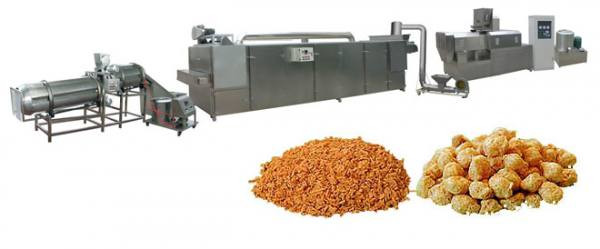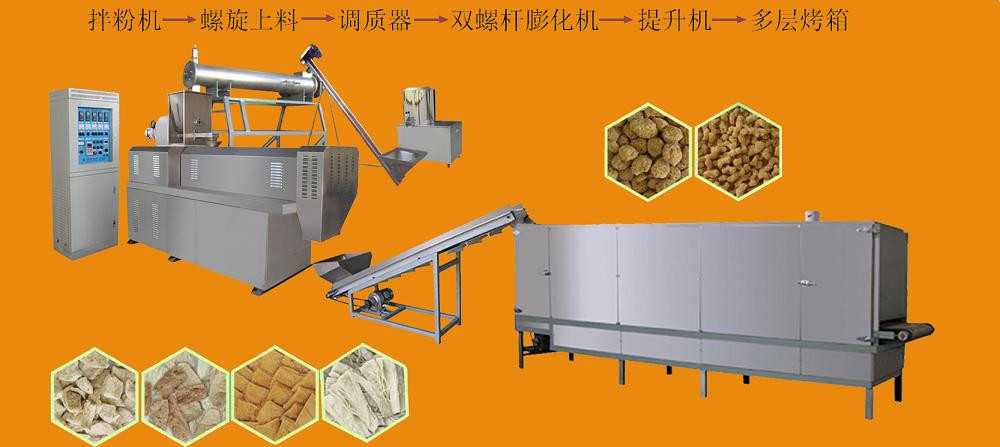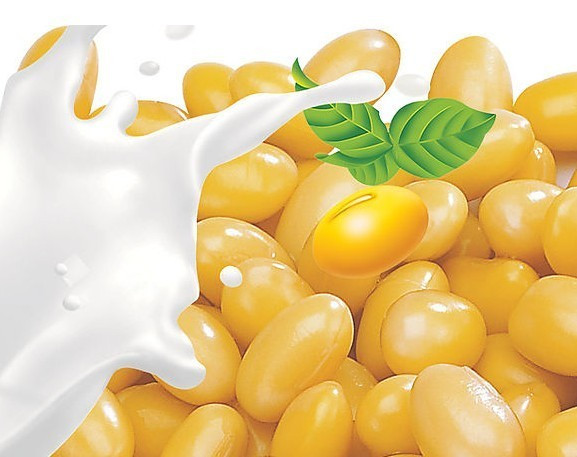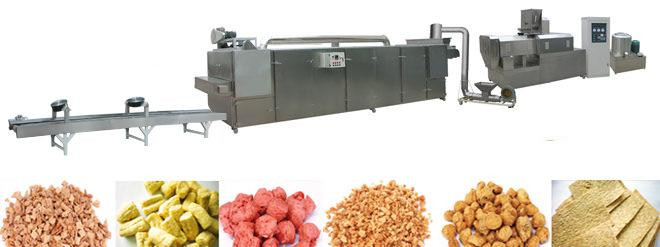Soya Protein Process Line

China is the country of origin of soybean, which has a history of 5000 years. Soybean was introduced to Southeast Asia through China and then to America through Europe. At present, soybean is the most important oil crop in the world. In 2000, soybean yield accounted for 56% of the total oil crop output, compared with the second and third rapeseed and cottonseed yields, only 11% and 12% respectively. In the past, China was the main producer of soybean, but according to statistics, after the 1950s, American soybean production exceeded China's ranking first in the world, and in recent years, the soybean production of three countries in the Americas far exceeded China's. China's total soybean production has increased, ranking fourth in the world. In 2000, the soybean production of the United States, Brazil and Argentina accounted for 45%, 21% and 15% of the world's total soybean production, while that of China and India accounted for only 9% and 3% of the world's soybean production; in 2000, China was the world's soybean production.Major importing countries import 26% of world exports.

Soybean is an important cash crop, its fat, protein and some trace components have important utilization value. In the processing and utilization of various chemical constituents of soybean, the processing and utilization technology of soybean protein has been one of the key issues of processing industry and researchers, and it is also an urgent problem to be solved in China. The protein content in soybean is not less than 38%, which is the most important and important nutrient component in soybean. So soybean protein is a very important and inexpensive plant protein resource. Compared with other traditional animal protein sources, the protein content per unit weight of soybean is significantly higher than that of animal protein.

Soybean meal, the product of defatted soybean, used to be mainly used for animal husbandry in the past; but after 1950s, with the advancement of oil processing technology, the corresponding industry of processing defatted soybean meal to produce soybean protein for human consumption developed rapidly. Soybean protein began to be used as a nutritional and functional protein raw material.All kinds of food are widely used. Statistics from the United States show that in this case.Animal protein is a food protein country. In recent years, the annual production of soybean protein is about 1 billion pounds, and the per capita consumption is 4-5 pounds. In addition, soybean protein is a cheap protein resource. Compared with traditional animal protein and plant protein, soybean protein can produce the most protein per unit area of land.
In conclusion, there are several important results about the relationship between soybean food and body health. Soybean protein has become an important phytochemical component, which will play a beneficial role in food health (or functional food).

Soybean and breast cancer: Soybean food is rich in isoflavones, which can reduce the risk of breast cancer in women.Soybean and menopausal syndrome (or climacteric syndrome): The same reason is that soybean food is rich in isoflavones and high intake of soybeans. The incidence of menopausal syndrome in Asian women is 1.3% in American women.Soybean food and osteoporosis: Compared with animal protein, soybean protein can reduce urinary calcium level, which is conducive to the body's absorption of calcium.Soybean and Serum Cholesterol Levels: Long-term studies have shown that the decrease of serum cholesterol levels and soybean protein intake in humans.Other health benefits include delaying aging and gallstones:Prevention, weight control, etc.
In foreign countries, soybean was considered a magical food raw material, using soybean as raw material or related with soy protein processing products of traditional soybean food, soybean and soybean protein food ingredients and other various forms of products. The main products are: the form of whole milk, soy cheese, soy yogurt, tofu, soy flour, fat and soybean powder, soybean protein, soybean protein, tissue protein, hydrolyzed soy protein, soy protein ingredients are widely used in food, beverage, meat, flour products, dairy products, infant imitation common food processing food, candy and other.